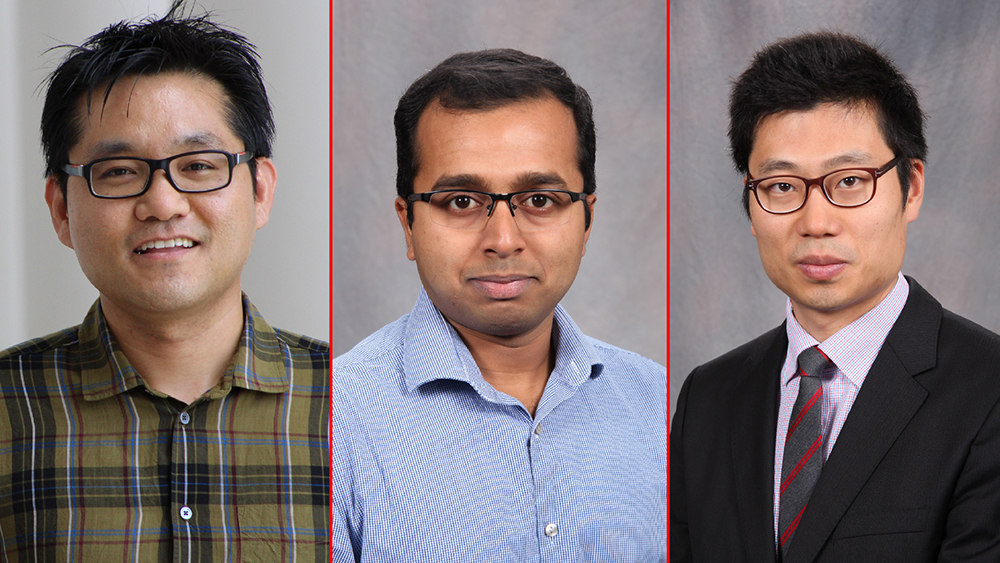
Three faculty members in the Department of Electrical and Computer Engineering at Texas A&M University shared their experiences and explained what it is really like to be an assistant professor. As an assistant professor, one wears many hats – from teaching classes and advising students to drafting research proposals and applying for the top research grants – making this a very dynamic position.
The typical day
A typical day is filled with preparing for classes, teaching and mentoring students, and setting aside time to work on research.
“My typical day can be summarized in three key words: finding the balance,” said Dr. Sung II Park.
“I think if you ask any assistant professor to describe their day in one word it would probably be ‘busy,’” said Dr. Dileep Kalathil. “It is challenging and busy, but at the same time it is extremely enjoyable, rewarding and satisfying.”
Passion for research
One thing that each faculty member shared was their desire to make a difference in our world through research and perseverance.
“The thing is that, interestingly enough, if you really work on something, you may find that not many people are working on the same thing and that all people think differently,” Dr. Hangue Park said. “There are so many opportunities.”
“The reason I chose academia over probably a much better paying desk job in Silicon Valley is I am passionate about research,” Kalathil said. “I work on artificial intelligence and reinforcement learning, which is a really exciting research area especially at this time. The opportunity to work on this research is something that I really cherish. I get the opportunity to read the latest papers and then I also get a chance to contribute to this outcome, which hopefully will push the boundaries of artificial intelligence. Having the ability to contribute to humanity, even in my own minor way, is a very rewarding experience.”
The initial spark
Sung II Park and Kalathil both shared that their initial interest to pursue this career path began in high school. Hangue Park explained that he once worked on a project that focused on tracking tongue movement through circuit design. This intrigued him but also led to his desire to study further into the human nervous system. Instead of just assisting a disabled individual, he had a desire to make it possible for an individual to regain their lost function.
“I am confident that state-of-the-art electronics technology arrived at the level to interact with the human nervous system,” Hangue Park said. “During my Ph.D. study, I really saw that electronics could help the nervous system and help them regain their function, which is really fascinating.”
Career goals and aspirations
“I am a member of the Institute of Neuroscience at Texas A&M University, so right now what we are trying to do is push the boundaries of neuroscience,” Sung II Park said. “We are working at the interface of electrical engineering and neuroscience and we are trying to push the boundary toward neuroscience so, hopefully in the near future, we can do tool development and study neuroscience.”
“I really want to contribute to human kind with my research outcome,” Hangue Park said.
Kalathil’s goals are to publish several research papers; help, train and assist his students to be successful; receive research awards and grants to fund his research; and gain recognition for his work in his area of interest.
Parting advice
“If you are really passionate and committed, then this is the best job that you can get,” Kalathil said. “No other job will give you the opportunity to learn continuously because clearly I am not going to teach the same thing that I am teaching now 20, 30 years down the line. No job will give you the opportunity to learn things by yourself and teach that to new generations of students.”
“There are several opportunities to pursue research, more than you expect,” Hangue Park said. “If you are interested in research, you should just go for it. There is a road for you.”